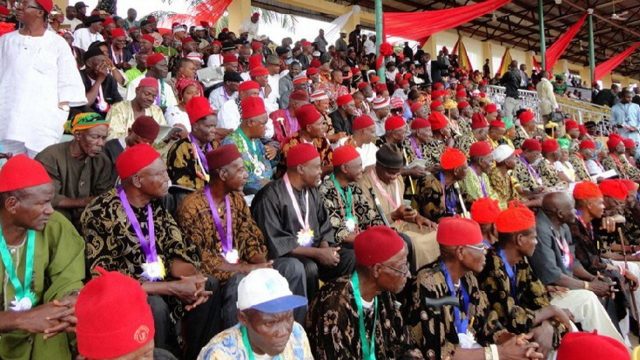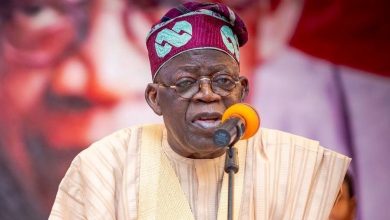
By Azuka Onwuka
This year, Chinua Achebe’s Things Fall Apart celebrated 65 years since it was published. Although it was not the first African novel, when Things Fall Apart was published in 1958, it redefined African literature. Before it, books written by Europeans portrayed Africa as a barbaric, uncultured and unorganised people who acted without reason or logic.
The quality of the novel made it the most-read, most-translated, most-quoted African literary work. In whichever country African literature is discussed, Things Fall Apart is usually used as the base text or a key text.
Things Fall Apart is also used to analyse human behaviour. The key characters – like Okonkwo, Unoka, Obierika, Ikemefuna, Nwoye, Ezinma – are frequently x-rayed as mirrors of human actions. One of such issues is the decision-making abilities of Okonkwo in relation to his killing of Ikemefuna, the ill-fated lad that was handed over to Umuofia to assuage their anger over the killing of Ogbuefi Udo’s wife by the people of Mbaino.
Any time some people review Okonkwo and his tragedy in Things Fall Apart, they pin it on his killing of Ikemefuna. Their argument is that Okonkwo took the wrong decision of delivering the blow that ended Ikemefuna’s life. They add that from the moment Okonkwo killed Ikemefuna, his life took a downward trend.
But based on the text, that does not seem to be the reality. One question I usually ask those who have read Things Fall Apart critically is: “Given the situation of things, what could Okonkwo have done to prevent himself from killing Ikemefuna?”
Some facts can be gleaned from the novel to analyse this issue. The novel states that Okonkwo was forewarned by Ogbuefi Ezeudu never to have any hand in the killing of Ikemefuna because Ikemefuna called him father. Clearly, Okonkwo liked the boy even more than his son Nwoye. Okonkwo knew that the entrance of Ikemefuna into his family had a positive effect on Nwoye. Until the entrance of Ikemefuna, Okonkwo had been worried and irritated that Nwoye was too soft and weak like his own father, Unoka. Because of the love Okonkwo had for Ikemefuna, he didn’t want to kill Ikemefuna.
Some people have argued that on the day Ikemefuna would be killed as appeasement for the desecration of the land by those who murdered Ogbuefi Udo’s wife, Okonkwo should not have gone with them. But it’s clear that Okonkwo only went with the men because he knew that Ikemefuna would have refused to go with those strange men without him. And since Ikemefuna was not a baby but a teenager (whose age could be around 15 years), it would have been impossible to trick him into going with the men. Also, using force to get him out of Okonkwo’s home to the outskirts of the village would have created the type of scene the leaders of Umuofia did not want.
That was why all through the journey, Okonkwo stood right behind Ikemefuna. And any time Ikemefuna looked back and saw Okonkwo behind him, he was reassured that he was safe. At the point the men were ready to kill him, Okonkwo withdrew to the rear. The moment Ikemefuna heard some whispering behind him and looked back and saw that Okonkwo was no longer behind him, he felt unsafe. The warning from the man behind him that he should stop looking back and continue on the journey worsened the situation. Fear overtook him. But somehow, the presence of Okonkwo in that entourage would still give him a glimmer of hope that nothing sinister would happen to him.
When the chosen hitman drew his machete to deliver the fatal blow, Okonkwo looked away. Despite all the macho image Okonkwo displayed, he didn’t want to witness the boy killed because of the soft spot he had for him.
But it looked as if Okonkwo was fated to kill Ikemefuna, for how does one explain the fact that a so-called Umuofia warrior could not strike at the neck of a boy whose back was turned to him? Ikemefuna did not know what the chosen Umuofia hitman was planning to do to him and could not have dodged the blow, yet the man missed. Not only did he completely miss, it was not reported that his blow knocked Ikemefuna down that he could not move fast. To cap it all, the Umuofia warrior also allowed Ikemefuna to run past him.
This point needs to be explained to make it clearer. Ikemefuna was walking with the men on a footpath which is usually only wide enough to take one person. Achebe describes that scene thus: “The footway had now become a narrow line in the heart of the forest.” People don’t walk side by side on such a pathway. They walk in a single file. Okonkwo was the last man in the line. Achebe calls the group of men a “party” and “men of Umuofia” without stating their number. This indicates that they were not several but many.
At the beginning of their journey, these men of Umuofia were said to have laughed “about some effeminate men who had refused to come with them,” implying that as many men as possible were expected to join the entourage. Before the moment Ikemefuna would be sacrificed, two of the men had moved ahead of him, presumably to block him from running away. When the so-called warrior struck Ikemefuna and missed, the little boy exclaimed, “My father, they have killed me!” and ran backwards towards Okonkwo. Note that in that narrow footpath, there could be up to five men behind Ikemefuna. All these men missed Ikemefuna even though they would all have drawn their machetes in readiness. These were all supposed to be warriors of Umuofia. Like some Achebe’s characters are wont to say in sarcasm: “Tell us another story!”
When Ikemefuna ran to Okonkwo, Achebe writes: “Dazed with fear, Okonkwo drew his matchet and cut him down. He was afraid of being thought weak.” Achebe does not only narrate the incident; he passes judgment on Okonkwo, informing the reader why Okonkwo took the action, thereby sustaining the image he has created about Okonkwo as a man ruled by fear of being thought weak like his father Unoka.
Since all the warriors of Umuofia had missed Ikemefuna, what could Okonkwo – the commander of the Umuofia army – have done in that split second? Should he have embraced Ikemefuna and warned the Umuofia men not to touch him again, thereby defying the pronouncement of the Oracle of the Hills and the Caves? Should he have run away from Ikemefuna and directed the men to do their job like Umuofia warriors? Should he have fled with Ikemefuna into exile, abandoning his family, wealth and achievements in Umuofia? Or should he have executed the divine order those weak and unreliable men could not do?
It must be remembered that Chinua Achebe is a master tragedian. His greatest books are tragedies. He expertly weaves the plot in such a way that sets up his protagonists for destruction. In Things Fall Apart, Okonkwo acts before he thinks, and is destroyed. In Arrow of God, Ezeulu thinks before he acts but is also destroyed. In No Longer at Ease, Obi Okonkwo tries to avoid the evil pervading society by shunning bribery while others collect bribes. Then he runs into some financial problems and collects some gratification but gets arrested, tried and imprisoned. Yet since the days of Obi Okonkwo, the country has been producing a deluge of brazenly corrupt people who continue demanding and receiving bribes, a malady which – over the decades – led to the crippling of the economy of the country, fostering insecurity which makes citizens to flee the country.
No doubt, Okonkwo’s killing of Ikemefuna is one of the lowest and saddest points of the novel, but that action was not what brought Okonkwo down. Okonkwo was too inflexible, impulsive, and egoistic to survive in a new world ruled by the British colonialists. His sole decision to kill the court messenger for delivering the message of the district commissioner that the Umuofia meeting be ended was his undoing. He did not have the endorsement of Umuofia to do that. And the Umuofia society was one in which key decisions were taken by the general assembly.
X(formerly Twitter): @BrandAzuka
SOURCE: PUNCH NEWSPAPER, except the title.



